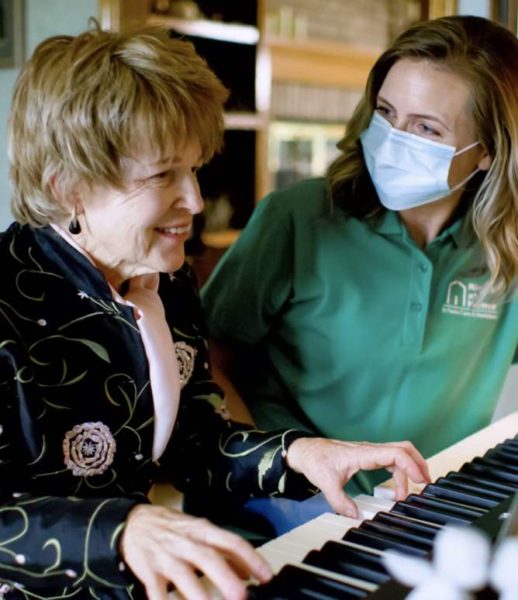Aging Right @ Home is a monthly blog series, answering your questions on providing care for individuals with disabilities, loved ones with dementia and older adults aging in place. If you have a question, please submit it to [email protected].
 Depression, anxiety and other mental health disorders are, unfortunately, quite common among the older population. The National Council on Aging (NCOA) reports that one in four older adults will experience a mental disorder. This is a growing concern not just for older adults, but also for the families and loved ones who help provide care. Having cared for many local aging seniors at Right At Home, one of Northern Virginia’s largest and longest running in-home care service providers, I wanted to provide answers to many of the frequent questions we hear from our clients:
Depression, anxiety and other mental health disorders are, unfortunately, quite common among the older population. The National Council on Aging (NCOA) reports that one in four older adults will experience a mental disorder. This is a growing concern not just for older adults, but also for the families and loved ones who help provide care. Having cared for many local aging seniors at Right At Home, one of Northern Virginia’s largest and longest running in-home care service providers, I wanted to provide answers to many of the frequent questions we hear from our clients:
Q: Are changes in my loved one’s personality and behavior just a normal part of aging?
A: Health problems, the loss of a spouse, disability and even one’s changing role after retirement can lead to personality changes. However, as a caregiver, family or friend, it’s important to recognize the differences between normal changes of aging and early signs of mental health disorders. The NCOA reports that, when left untreated, these disorders can lead to more serious issues.
Q: What are the signs that my loved one might have a mental health condition that should be addressed?
A: This question is tough, because often changes can be gradual and subtle. If you have concerns, have an initial consultation with their doctor. If your loved one is feeling unusually confused or on edge, showing low or no energy, losing interest in things they once enjoyed, or showing other signs of helpless or hopeless, a doctor can help with an initial diagnosis.
Q: Can mental health disorders be treated?
A: The good news is, in many cases, there are treatments that can help. Your loved one’s doctor might recommend cognitive behavioral therapy or psychotherapy. A geriatric mental health professional may also prescribe medications while taking into account a patient’s ability to manage medications, other current medications and how their age affects the way their body processes substances.
Q: Can professional in-home caregivers support the health of older clients?
A: Yes! Receiving care in the familiar environment of a senior’s home is conducive to good mental health. Professional in-home caregivers not only provide companionship, which is of particular importance, but also help reduce stress for the client and their families.
Professional in-home caregivers also provide assistance with a variety of tasks, from accompanying clients to the doctor and pharmacy, bathing, dressing, meal preparation, and housekeeping. For my caregivers at Right at Home, we’ll work specifically with families to support the needs of senior loved ones and family caregivers alike. Feel free to reach out for a consultation or if I can answer any questions during your search for care.
Your neighbor, and Owner/President of Right at Home of Northern Virginia,
Phillip Turner, CDP, CSA
Each month readers can submit questions to Phillip Turner (CSA, CDP), the Owner and Executive Director of Right At Home Northern Virginia, one of the area’s largest and longest-serving providers of in-home senior care.
As a Certified Senior Advisor (CSA) and a Certified Dementia Practitioner (CDP), Phillip is passionate about providing individualized care, enthusiastic management services and collaborating with other health care providers. If you have a question, please submit to [email protected].



